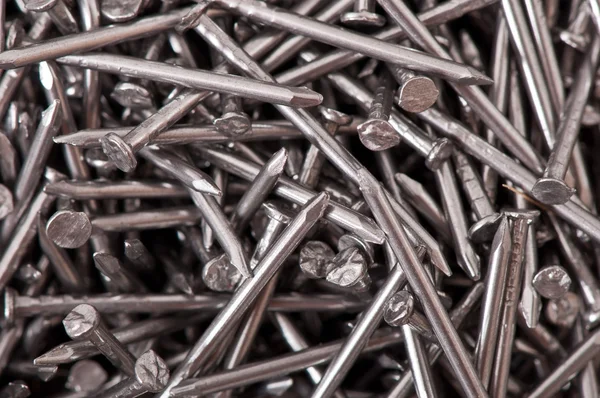Finding the Best Common Nail: A Comprehensive Review
Nails are a fundamental component in various construction, framing, and woodworking projects. When searching for reliable nail products, Amazon offers a wide range of options to choose from. To help you make an informed decision, we’ve compiled a list of the top 5 common nail products available on Amazon, each serving different purposes and applications.
To see our related product guide article, click here.
Top Picks for Best Common Nail
HILLMAN FASTENERS 461473 4″ 20D Galvanized Common Nail
The HILLMAN FASTENERS 461473 4″ 20D Galvanized Common Nail is a heavy-duty option designed for outdoor use and exposed applications. These 20D nails are four inches in length, providing superior holding power for structural and framing projects. The galvanized coating ensures resistance to rust and corrosion, making them suitable for long-term durability in various weather conditions.
Pros:
- Heavy-duty nails for structural and framing purposes.
- Galvanized coating offers excellent corrosion resistance.
- Ideal for outdoor and exposed applications.
- Secure and long-lasting fastening.
- Versatile for various woodworking and construction tasks.
Cons:
- The larger size might not be suitable for delicate projects.
GRIP-RITE 10C1 FASN’ERS 3” 10D 9 Gauge 5/16″ Head Bright Common Nail Pack
The GRIP-RITE 10C1 FASN’ERS 10D 3″ Construction/Framing Common Nails are designed for heavy-duty construction and framing work. With a 9-gauge thickness and a 5/16″ head, these nails offer exceptional holding power and secure fastening. The bright finish provides a classic appearance and is suitable for indoor applications.
Pros:
- Heavy-duty 9-gauge nails for robust construction projects.
- Large pack size with 66 nails for extended use.
- Strong and reliable fastening for framing applications.
- The bright finish gives a polished look to indoor projects.
- Compatible with most framing nailers.
Cons:
- The bright finish may not be suitable for outdoor use.
HILLMAN FASTENERS 461366 4″ 20D Bright Common Nail
The HILLMAN FASTENERS 461366 4″ 20D Bright Common Nail is a versatile option for both indoor and outdoor projects. These 20D nails feature a bright finish, providing a clean and polished appearance to your woodworking and construction applications. With a length of four inches, they offer strong holding power for various tasks.
Pros:
- Versatile nails suitable for indoor and outdoor use.
- The bright finish adds a polished look to woodworking projects.
- Strong holding power for framing and structural applications.
- Suitable for general construction needs.
- Durable and reliable performance.
Cons:
- The bright finish may not be as corrosion-resistant as galvanized nails.
HILLMAN FASTENERS 461358 5 lb 2.5″ 8D Bright Common Nail
The HILLMAN FASTENERS 461358 5 lb 2.5″ 8D Bright Common Nail is a medium-duty option suitable for various woodworking and general construction tasks. The 2.5-inch length provides ample holding power for lighter applications, and the bright finish complements indoor projects.
Pros:
- Medium-duty nails for woodworking and general construction.
- The bright finish enhances aesthetics for indoor projects.
- Ample quantity in the 5 lb pack for extended use.
- Versatile size for various tasks.
- Compatible with most nail guns.
Cons:
- Not suitable for heavy-duty framing and structural work.
The Hillman Group 592251 Polished Common Nail Pack 6D, 2-Inch, Silver
The Hillman Group 592251 Polished Common Nail Pack includes small, yet sturdy nails designed for delicate woodworking and craft projects. With a 2-inch length, these nails are ideal for light-duty applications such as picture hanging, trim work, and finishing tasks. The silver finish adds a touch of elegance to your projects.
Pros:
- Small and delicate nails for precision woodworking.
- Suitable for picture hanging, trim work, and finishing details.
- The silver finish provides an elegant appearance.
- Ample quantity for small-scale projects.
- Easy to handle and drive into various materials.
Cons:
- Not suitable for heavy construction or framing.
- Limited length may not offer sufficient holding power for larger tasks.
Conclusion
When selecting the right nail product from Amazon, consider the specific requirements of your project, the intended application, and the quantity needed. Each of these top 5 common nail products brings unique benefits to various tasks, ensuring secure and reliable fastening for your woodworking, construction, and framing endeavors. Happy nailing!
What Should You Look for in a Common Nail?
When choosing common nails for your projects, several factors should be taken into consideration to ensure you select the right type of nail for the job. Here are some key aspects to look for in a common nail:
- Nail Size: Common nails come in various sizes, typically denoted by a “penny” size (d) or by their length in inches. Choose the appropriate size based on the thickness of the material you are fastening and the depth of penetration required.
- Nail Material: Common nails are commonly made from steel, but they may have different finishes or coatings to enhance their properties. Galvanized nails offer excellent corrosion resistance, making them suitable for outdoor applications. Bright nails have a plain steel finish and are often used for indoor projects.
- Nail Shank: Pay attention to the shank of the nail, which refers to the body’s texture. Common nails have smooth shanks, providing reliable holding power in various materials. For specific applications, such as woodworking or softwoods, nails with ring or spiral shanks might be preferred for improved grip.
- Head Type: Common nails usually have a flat, round head that sits flush with the surface of the material when driven in. This head type is suitable for general-purpose applications. For some projects, such as trim work, you might choose nails with decorative or countersunk heads.
- Point Type: Nails typically have a diamond point that allows for easier driving into the material. The point should be sharp and well-defined for effortless penetration.
- Application: Consider the type of project you are working on. For heavy-duty construction and framing, you’ll need larger and thicker nails, while smaller nails are suitable for delicate woodworking and finishing tasks.
- Rust Resistance: If your project is exposed to the elements or in a damp environment, choosing galvanized or stainless steel nails will provide better rust resistance and durability.
- Compatibility: Ensure that the common nails you choose are compatible with your nail gun or hammer. Some nails are designed specifically for use with nail guns, while others are meant for hand hammering.
- Quantity: Evaluate the quantity of nails you need for your project. Buying in bulk might be more cost-effective if you have a larger-scale job.
- Brand and Quality: Consider reputable brands known for producing high-quality nails. The quality of the nail will impact its performance and longevity in your project.
By considering these factors, you can choose the most appropriate common nails for your specific needs, ensuring that your construction, woodworking, or repair projects are completed successfully and securely.
Frequently Asked Questions
What is a common nail?
A common nail is a type of nail that has a smooth shank and a flat, round head. It is one of the most widely used and versatile types of nails, commonly used in various construction, woodworking, and repair projects. Common nails are typically made of steel and come in various sizes, denoted by a “penny” size (d) or by their length in inches.
The smooth shank of a common nail allows for easy penetration into various materials, including wood, drywall, and soft metals. The flat, round head sits flush with the surface of the material when the nail is driven in, providing a neat and tidy appearance.
These nails are called “common” because they are standard, basic nails that are suitable for a wide range of applications. They are used in framing, carpentry, general construction, and various DIY projects. Depending on the specific project requirements, common nails may be available with different finishes or coatings, such as galvanized or bright finishes, to enhance their durability and resistance to corrosion.
Common nails are available in different lengths and thicknesses to accommodate various materials and the depth of penetration needed. They are often driven into place using a hammer or a nail gun, depending on the user’s preference and the scale of the project.
Overall, common nails are reliable, easy to use, and a staple in many toolboxes and construction sites due to their versatility and wide range of applications.
What is the difference between a common nail and a finishing nail?
The main difference between a common nail and a finishing nail lies in their design, purpose, and appearance, which make them suitable for different types of projects. If you want to read more about finishing nails, see our product review here and our product guide here.
Here are the key distinctions between the two:
Shank Type:
- Common Nail: Common nails have a smooth shank, which means they have a straight and even surface without any ridges or threads. The smooth shank allows for easy penetration into various materials.
- Finishing Nail: Finishing nails have a slender and smaller diameter than common nails. They often have a “dimpled” or “slightly ridged” shank, which provides better holding power and reduces the risk of splitting delicate materials, such as trim or molding.
Head Type:
- Common Nail: Common nails have a flat, round head that sits flush with the surface of the material when driven in. The flat head is suitable for general construction and framing projects.
- Finishing Nail: Finishing nails have a smaller, rounded, and slightly countersunk head. This type of head allows the nail to be driven slightly below the surface, and once the hole is filled, the nail becomes virtually invisible, providing a clean and finished appearance.
Purpose and Application:
- Common Nail: Common nails are versatile and used for a wide range of general construction and framing applications. They are suitable for heavy-duty tasks like building walls, roofs, and other structural components.
- Finishing Nail: Finishing nails are specifically designed for delicate projects and finishing work, where appearance is crucial. They are commonly used for installing trim, molding, baseboards, and other decorative elements.
Nail Length and Gauge:
- Common Nail: Common nails are available in various lengths and gauges, typically ranging from 1 inch to several inches long. They come in thicker gauges to provide robust holding power in structural applications.
- Finishing Nail: Finishing nails are shorter and thinner compared to common nails. They are usually available in lengths between 1 inch to 2.5 inches, with smaller gauges to prevent material splitting.
Driven Depth:
- Common Nail: Common nails are usually driven all the way into the material, leaving the head flush with the surface.
- Finishing Nail: Finishing nails are driven slightly below the surface of the material and then the hole is filled with putty or wood filler to conceal the nail head.
In summary, common nails are robust and versatile, suitable for heavy-duty construction and framing projects, while finishing nails are designed for delicate work and provide a more polished and concealed appearance, making them ideal for finishing and decorative applications. Choosing the right type of nail depends on the specific requirements and aesthetic considerations of the project at hand.
What is the best material for a common nail?
The best material for a common nail depends on the intended application and the environmental conditions it will be subjected to. Common nails are typically made from different materials, each offering distinct properties. Here are some common nail materials and their advantages:
- Steel Nails: Steel nails are the most common and widely used material for common nails. They are strong, durable, and suitable for a wide range of applications, including general construction, framing, and woodworking. Steel nails are available with different finishes, such as galvanized or bright, to provide enhanced corrosion resistance.
- Galvanized Steel Nails: Galvanized steel nails have a zinc coating applied to the surface, which provides excellent resistance to rust and corrosion. They are ideal for outdoor and marine applications where the nails will be exposed to moisture and harsh weather conditions.
- Stainless Steel Nails: Stainless steel nails are highly resistant to corrosion and rust due to their chromium content. They are well-suited for use in outdoor, coastal, and other environments where moisture and salt exposure are concerns.
- Aluminum Nails: Aluminum nails are lightweight and rust-resistant, making them suitable for use in projects where weight reduction and corrosion prevention are essential, such as outdoor furniture or marine applications.
- Copper Nails: Copper nails are corrosion-resistant and often used in specific applications, such as roofing and boat building. They are known for their longevity and ability to withstand harsh environments.
In general, for most common construction and woodworking projects, galvanized steel nails are a popular choice due to their affordability, strength, and good corrosion resistance. However, if your project requires additional protection against rust or you are working in corrosive or outdoor environments, stainless steel or galvanized nails may be a better option. Ultimately, selecting the best material for a common nail depends on your specific project requirements, budget, and the environmental factors the nails will encounter.
What are the different grades of a common nail?
The grading of common nails is based on their size, length, and weight. The grading system is commonly denoted by a “penny” size (d) or by a specific length in inches. Here are the typical grades of common nails:
2d: This is one of the smallest common nail sizes. It is approximately 1 inch in length and is used for delicate and lightweight applications, such as attaching thin moldings or trim.
3d: Slightly larger than the 2d, the 3d common nail is around 1.25 inches long. It is still suitable for lightweight tasks, such as fastening thin materials.
4d: The 4d common nail is about 1.5 inches in length and is commonly used for small woodworking projects or attaching light items.
6d: Measuring around 2 inches in length, the 6d common nail is one of the most versatile and commonly used sizes. It is suitable for a wide range of construction and woodworking tasks.
8d: The 8d common nail is approximately 2.5 inches long and is commonly used for framing, construction, and carpentry work.
10d: Measuring around 3 inches in length, the 10d common nail is ideal for heavier construction tasks, such as framing walls and floors.
12d: This common nail is about 3.25 inches long and is commonly used in framing and other heavy-duty construction applications.
16d: The 16d common nail is around 3.5 inches long and is suitable for more robust construction and framing projects.
20d: The largest common nail size in this grading system, the 20d nail is approximately 4 inches long and is used for heavy-duty framing and structural work.
It’s important to note that the specific lengths and sizes of common nails can vary slightly depending on the manufacturer and the region. The grading system provides a convenient way to choose the appropriate nail size based on the application and the thickness of the materials being fastened. When selecting the right common nail for your project, consider the material you are working with, the depth of penetration required, and the holding power needed for the task at hand.
editor's pick
news via inbox
Stay one step ahead with exclusive tips, guides, and offers delivered directly to your inbox.
Sign up for our newsletter and elevate your home improvement game today!







